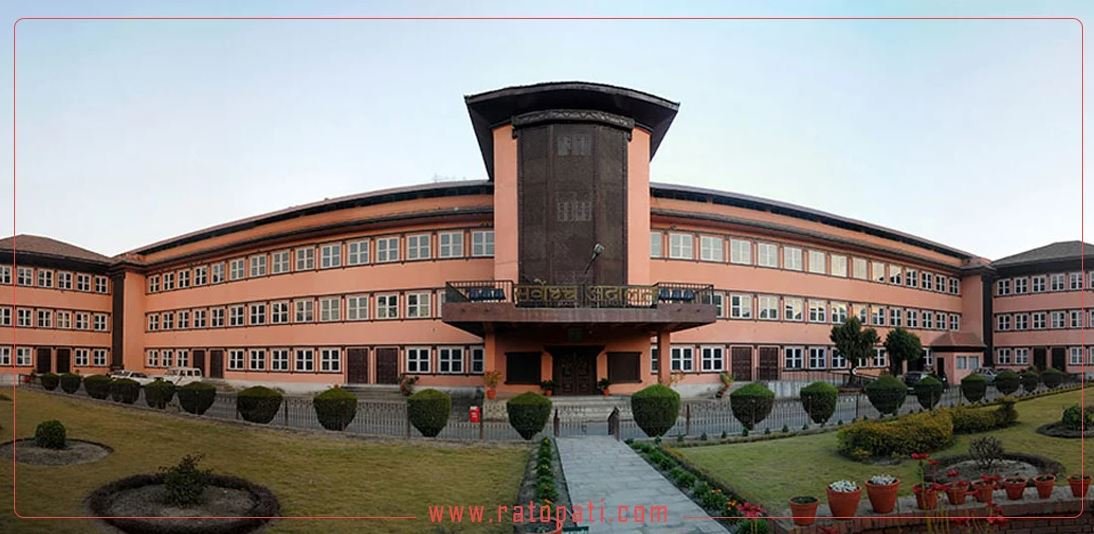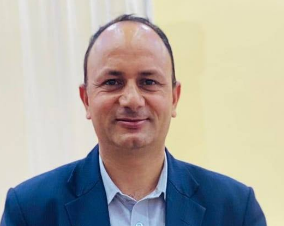Supreme Court faces severe judge shortage, over 26,000 cases pending

Kathmandu, November 7 — It has been one month since Prakashman Singh Raut took the oath as the 32nd Chief Justice of the Supreme Court. President Ram Chandra Paudel appointed Raut as Chief Justice and administered the oath on October 6.
Before his appointment, during the parliamentary hearing, Raut had pledged to immediately fill the vacancies in the judiciary. However, due to a delay in fulfilling this promise, the Supreme Court is currently functioning with only 15 judges. At present, there are more than 26,000 cases pending in the Supreme Court. On Wednesday alone, 144 cases were scheduled for hearing, of which 13 were decided, and 12 received orders.
On Wednesday, the Supreme Court had assigned six benches, including the constitutional bench. Since the constitutional bench requires the participation of the Chief Justice and five other judges, fewer benches were set up that day.
The number of pending cases in the Supreme Court has been steadily increasing. However, due to the shortage of judges, delays in the administration of justice are becoming more pronounced. The Constitution specifies that there should be 20 permanent judges in the Supreme Court, excluding the Chief Justice. It also stipulates that the process of recommending new judges should begin at least one month before a judicial position becomes vacant. However, the practice of delaying the appointment process even after vacancies arise continues.
Currently, the number of judges in the Supreme Court has been reduced to 15. This is due to delays in the parliamentary hearings of the recommended candidates, and the failure to recommend new judges in time.
There are six vacant judge positions at the Supreme Court. Two of the recommended candidates are still awaiting hearings, and four more need to be nominated. As a result, Chief Justice Raut has begun efforts to fill these vacancies. Though preparations and discussions were delayed due to major festivals like Dashain and Tihar, meetings of the Judicial Council will now be held to discuss judicial appointments, according to sources from the Council.
Chief Justice Raut has stated that his primary task is to make the judiciary more efficient, and has shared plans with colleagues to appoint judges as per the established vacancies.
The shortage of judges has led to a situation where hearings are scheduled daily, but the actual hearings often do not take place. Chief Justice Raut has expressed the need to address the backlog of old cases and to work against the judicial system’s inefficiencies. During his parliamentary hearing, he had committed to implementing measures to reform the judiciary and restore public trust, and he is now taking steps in this direction.
Recently, in an interaction with journalists, Chief Justice Raut had identified the appointment of judges as his top priority. Accordingly, he has directed the Judicial Council Secretariat to prepare a list of qualified candidates for appointment to the Supreme Court. The Secretariat is compiling a roster of potential candidates, including Chief Judges of High Courts, legal experts, and other qualified professionals.
According to Article 129 of the Constitution, specific qualifications are required to become a judge of the Supreme Court. Section 2 of this article states that the Chief Justice and other judges of the Supreme Court are appointed by the President upon the recommendation of the Constitutional Council and the Judicial Council. Section 5 outlines the qualifications for appointment, which include having a law degree and substantial experience in legal practice or judicial service.
The Judicial Council Secretariat is preparing a roster from among those who meet the constitutional qualifications. Yambahadur Budhamagar, Secretary of the Judicial Council, stated that the Secretariat is always ready to recommend judges. Once the Judicial Council sends its recommendations, they undergo parliamentary hearings, after which the President formally appoints the judges.
Hearing for two judges on Friday
The parliamentary hearing for two recommended judges for permanent positions in the Supreme Court will take place this Friday. The parliamentary hearing committee had originally planned to conduct the public hearings before Tihar, but they were delayed due to a lack of time. According to the Parliament Secretariat, the study of their applications has been completed, and the decision regarding their approval will be made on Friday.
The Judicial Council had recommended two Chief Justices, Nripadhwaj Niraula of the Patan High Court and Nityananda Pandey of the Tulsipur High Court, for appointment to the Supreme Court on November 10. It has been over a month since their names were recommended, but the hearings have not yet taken place. If their names are approved on Friday by the parliamentary committee, they will be appointed and take the oath on Sunday. After their appointment, four judge positions will still remain vacant in the Supreme Court.










Leave Comment